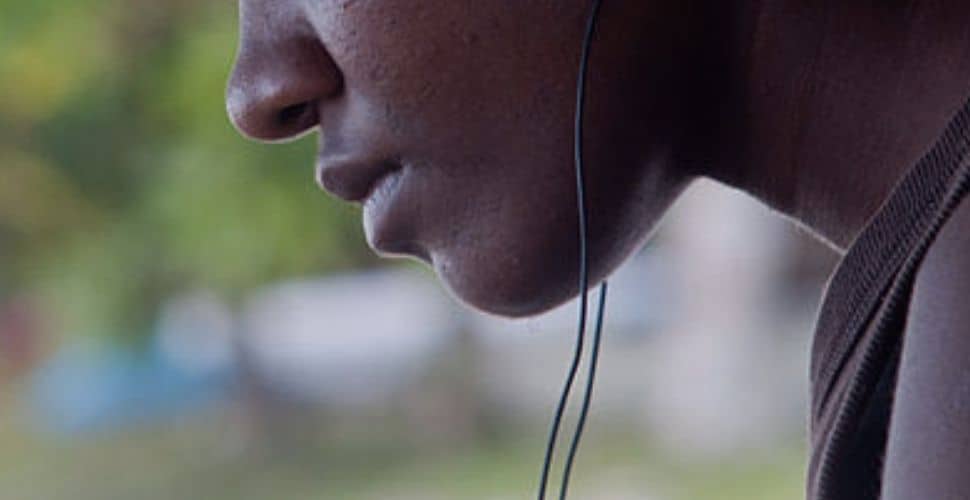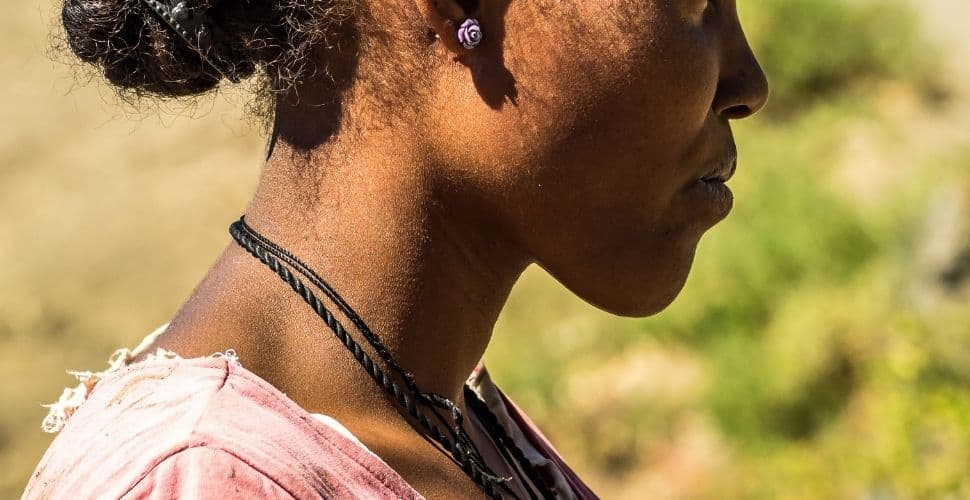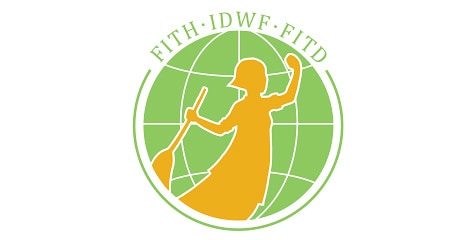Watch our video on domestic slavery.
What are domestic workers?
People leave their homes every day to find jobs as domestic workers in the cities of our countries. Women make up by far most of those working in private homes, but what’s shocking is that a quarter of domestic workers are children,1 and the majority are aged under 14, with some starting work at just five years old.2
Although domestic work need not be exploitative, it is isolated and so unprotected. Combined with the worker’s extreme dependency on an employer and a lack of rights, they are especially vulnerable to exploitation and abuse.
This is particularly true for children and migrant workers. Locked inside the homes of strangers, some domestic workers find themselves caught in the nightmare of modern slavery. They are deceived by false job offers and unscrupulous employers who extract their labor under threat, preventing contact with their families, and withholding their wages. Physical punishment, as well as sexual abuse, is not uncommon in domestic servitude.
Global standard for domestic workers
But there is a global standard to protect domestic workers. It’s called Convention 189 and it sets out measures for governments to follow to better protect them.3 37 key countries have already signed4 on however momentum has slowed since it was introduced in 2011, and we need to push our governments to act.
Call on the Government of your country to ratify Convention 189 immediately and help protect children and adults from domestic slavery.
It’s not known how many thousands, or millions, of domestic workers, including children, have been trafficked into servitude.5 Poverty, rural-urban and cross-border migration, to deep-rooted practices like sending children to live elsewhere, as well as discrimination, are all factors that contribute to trafficking into domestic servitude.
Domestic workers’ stories
Pham Thi Dao’s Story
Pham Thi Dao left Vietnam to become a domestic worker in Saudi Arabia where she was forced to work from 5am until 1am, beaten and given little food. “As soon as I arrived at the airport in Riyadh, they (employees from a Saudi company providing domestic workers) pushed me into a room with more than a hundred of others,” she said. “When my employer picked me up later, he took my passport and employment contract. Most women I’ve talked to here experience the same thing.”6
In Haiti, restaveks are children who are sent to a host family by their biological families in the hope of a better life in exchange for doing chores. However, many are forced to work without pay, beaten, starved, cut off from their families, and at high risk of physical and sexual abuse.7
June’s Story
June was given away by her parents aged five to become a restavek. She was sent to the capital city, Port-au-Prince, eight hours away from her hometown, Jérémie, where she would endure over ten years of abuse. Promises from host families to provide her with an education would be repeatedly broken. Today, there are over 300,000 children like June in Haiti.8
Latifa’s Story
Latifa was 12 years old when she was sent to work for a family in Casablanca, Morocco’s largest city, as a petits bonnes or child domestic worker. Latifa worked 18-hour days caring for four children, cleaning, and cooking without rest. She was allowed to eat at 7 am and once more at midnight before going to bed, all whilst enduring physical abuse from her employer.9
“I don’t mind working, but to be beaten and not to have enough food, this is the hardest part of it.” Luckily, Latifa managed to escape and rejoin her family but many of the thousands of children in domestic work in Morocco, some in domestic slavery, are trapped.10
Around the world, there are at least 67.1 million domestic workers – millions of them children. Women make up 81% of national domestic workers and 73% of migrant domestic workers11 If all domestic workers worked in one country, this country would be the tenth largest employer worldwide.
Domestic work is an important source of employment but the people behind these numbers are too often invisible behind the doors of private households and unprotected by national legislation. This allows for the worst types of abuse often amounting to modern slavery.
Tougher rules to protect domestic workers are long overdue. By sending a message to the Government of your country today you can help start a domino effect until all countries take action.
37 countries have already taken this step – will yours be next?
Countries that have ratified (as of January 2025):
Antigua and Barbuda, Argentina, Barbados, Belgium, Bolivia, Brazil, Chile, Colombia, Costa Rica, Dominican Republic, Ecuador, Finland, Germany, Grenada, Guinea, Guyana, Ireland, Italy, Jamaica, Madagascar, Malta, Mauritius, Mexico, Namibia, Nicaragua, Norway, Panama, Paraguay, Peru, Philippines, Portugal, Seychelles, Sierra Leone, South Africa, Spain, Sweden, Switzerland, Uruguay
Notes:
- https://www.ilo.org/wcmsp5/groups/public/—dgreports/—dcomm/—publ/documents/publication/wcms_173363.pdf ↩
- https://www.ilo.org/ipec/areas/Childdomesticlabour/lang–en/index.htm ↩
- http://www.ilo.org/dyn/normlex/en/f?p=NORMLEXPUB:12100:0::NO:12100:P12100_INSTRUMENT_ID:2551460:NO ↩
- https://www.ilo.org/dyn/normlex/en/f?p=NORMLEXPUB:11300:0::NO::P11300_INSTRUMENT_ID:2551460 ↩
- https://www.ilo.org/ipec/areas/Childdomesticlabour/lang–en/index.htm ↩
- https://www.aljazeera.com/indepth/features/overworked-abused-hungry-vietnamese-domestic-workers-saudi-180919083829939.html ↩
- https://restavekfreedom.org/issue/#restavek ↩
- https://restavekfreedom.org/2019/01/25/junes-story/ ↩
- https://www.hrw.org/report/2012/11/15/lonely-servitude/child-domestic-labor-morocco ↩
- https://www.hrw.org/report/2012/11/15/lonely-servitude/child-domestic-labor-morocco ↩
- https://www.ilo.org/wcmsp5/groups/public/—ed_protect/—protrav/—migrant/documents/briefingnote/wcms_490162.pdf ↩












Make your voice heard
Comment
92
Share this petition